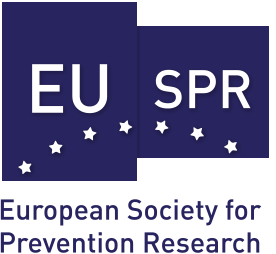Speakers
Description
Authors: Fabrizia Giannotta (University of Turin), Peter Larm (Stockholm University)
Background: In Sweden, approximately 20% of children and adolescents grow up with at least one parent who misuses alcohol. These children are at increased risk not only for developing substance use problems themselves but also for a range of behavioral and emotional difficulties. This study aims to evaluate the effects of the most commonly used selective prevention strategy in Sweden: child group interventions targeting children aged 6–12. Additionally, we examine whether program effects differ based on parental socioeconomic status (marital status and education level).
Methods: A pre–post follow-up design was used, involving 150 children interviewed at three time points: before the intervention, immediately after, and six months later. Children reported on chronic stress, coping skills, self-esteem, and social support. Parents reported on children’s emotional problems, ADHD symptoms, and conduct problems. Paired-sample t-tests were used to assess changes over time.
Results: Preliminary findings suggest that the interventions did not significantly affect chronic stress, coping skills, social support, or self-esteem. However, improvements were observed in mental health outcomes, with emotional problems and disruptive behaviors reduced by approximately 20%. Trends toward improvement in coping skills were observed among children of single parents and those without a university education, though results did not reach statistical significance. Similarly, a tendency for increased self-esteem was noted among children whose parents were married or cohabiting. Notably, self-esteem improved significantly in children whose parents were married or cohabiting with a new partner.
Conclusions: Initial findings suggest that these widely implemented child group interventions may help reduce emotional and behavioral problems in children of parents with alcohol use disorders. However, randomized controlled trials are needed to confirm their effectiveness and explore mechanisms of change.
| Conflict of interest | No conflict of interest |
|---|

